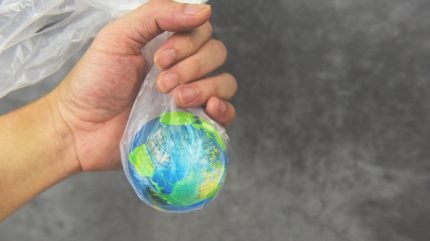
An average of 85% of people polled worldwide believe a soon-to-be concluded global plastic pollution treaty should ban single-use plastics.
This is according to survey of more than 24,000 people in 32 countries commissioned by WWF and the Plastic Free Foundation.
These results precede the fourth and penultimate Global Plastics Treaty negotiations, taking place in Ottawa, Canada from April 23-29.
With more than 430m tonnes of virgin plastic produced each year a global ban on single-use plastics that are deemed unnecessary, avoidable, and harmful, is one of several in a suite of urgent measures the public wants to see in the treaty.
Other highly favoured bans include those on harmful chemicals used in plastic (which 90% supported) and plastic products and packaging that cannot be easily and safely recycled in the countries where they are used (87%).
In addition, the results reveal widespread understanding that bans alone are not enough to end the plastic pollution crisis. Citizens polled worldwide also strongly support redesigning the current plastics system to ensure remaining plastics can be safely reused and recycled.

US Tariffs are shifting - will you react or anticipate?
Don’t let policy changes catch you off guard. Stay proactive with real-time data and expert analysis.
By GlobalDataIn particular, measures such as mandating manufacturers to invest in and provide reuse and refill systems polled 87% support. Meanwhile, 72% of people support ensuring all countries have access to funding, technology and resources to enable a just transition.
WWF International global plastics lead Eirik Lindebjerg commented: “Few ordinary citizens are involved in the negotiations for a global plastic pollution treaty despite living on the frontlines of the crisis.
“Yet the survey shows citizens have a high level of awareness, concern and engagement on what is needed to end plastic pollution and are rejecting the toxic and unjust plastics ecosystem that’s been imposed on them through lax laws and profit-oriented businesses.”
WWF and the Plastic Free Foundation urge governments to get agreement on binding global rules that phase out, if not immediately ban, the most harmful substances and products, design global product requirements that ensure remaining plastic products can be easily reused and recycled, and put in place strong financial mechanisms to support a just transition.



